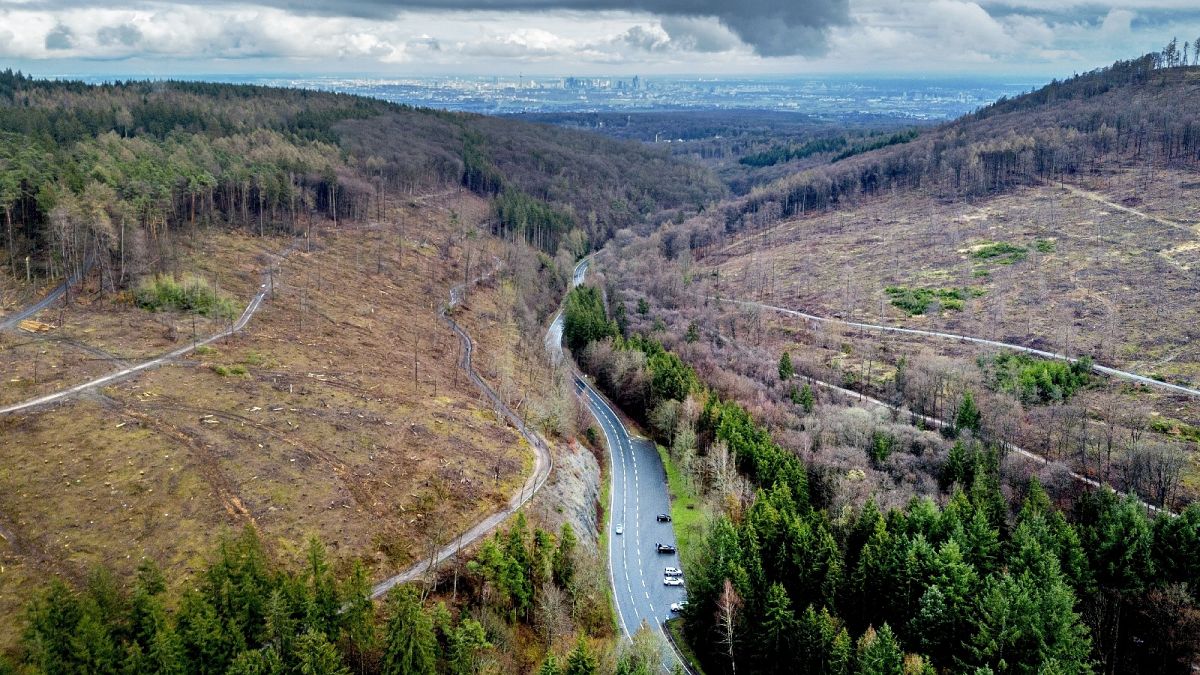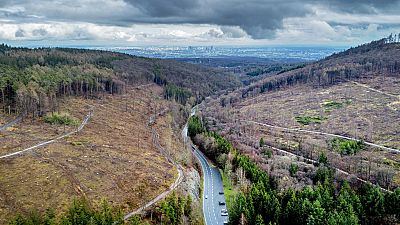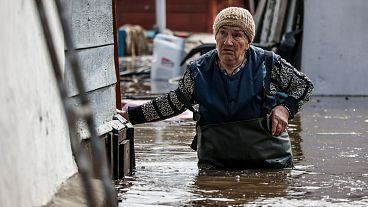The key piece of legislation on nature restoration and biodiversity had stumbled over the issue of agriculture.
The Nature Restoration Law will require member states to implement measures to restore nature on at least 20 per cent of the Union's land and marine areas by 2030 and all ecosystems in need of restoration by 2050.
"To reach these targets, EU countries must restore at least 30 per cent of habitat types covered by the new law to a good condition by 2030, increasing to 60 per cent by 2040, and 90 per cent by 2050," according to a statement from the European Parliament.
"We can be proud of this historic result, which defines rules that are ambitious and practicable for everyone," Pascal Canfin, head of the Parliament's environment committee, said on X (formerly Twitter).
Teresa Ribera Rodriguez, Minister for the Ecological Transition in Spain, which currently holds the EU Council's rotating presidency, also described herself as "proud" of the law, "the first of its kind".
The European Commission said in a statement that it "welcomes" the agreement, arguing that once its adoption has been finalised it will be "a key contribution to reaching climate neutrality by 2050" and that it will increase "Europe's preparedness and resilience to the effects of climate change".
What do critics say about the Nature Restoration Law?
Critics, however, pointed the finger at the elements that had been watered down with the World Wind Fund for Nature (WWF) writing that "it is disappointing to see that many exemptions included, and the excessive flexibility regarding obligations for member states."
Ioannis Agapakis, a Nature Conservation lawyer at ClientEarth, also cautiously welcomed the text. “We finally have a much-needed law that in theory, would force the EU to take concrete action to restore its ailing nature."
"However, negotiators have hollowed out the law to the point that it risks being toothless in practice and prone to abuse. The numerous exemptions and lack of legal safeguards have set a very frightening precedent for EU law-making, rather than cementing the EU at the forefront of biodiversity conservation," he added.
Why was the Nature Restoration Law watered down?
The European Commission had proposed the text in 2022 but it had in recent months become the target of a fierce campaign, particularly by the European People's Party (EPP), the parliament's largest formation, to torpedo it.
The EPP said the proposed law would threaten the traditional livelihoods of European farmers and fishers, disrupt long-established supply chains, decrease food production, push prices up for consumers and even wipe out urban areas to make way for green spaces.
The right-wing group claimed credit for the changes to the bill that was adopted in trilogue on Thursday with MEP Christine Schneider (German) writing in a statement: "We welcome the fact that the final text on this law has little to do with the original proposal from the Commission".
The regulation now needs to be formally adopted by the Parliament and the member states and will enter into force 20 days after it is published in the Official Journal of the EU.
The 27 member states will then have two years to submit their first nature restoration plan outlining the restoration needs and measures they plan to roll out to address them as well as a clear timeline for their implementation.
But its final adoption by the Parliament could prove difficult with NGOs raising the prospect of a repeat of the summer when the text was first voted down by the environment committee with 44 votes in favour and 44 votes against - a simple majority of one vote is needed for texts to move forward at the Committee level - due to EPP opposition.
Chiara Martinelli, Director at Climate Action Network (CAN) Europe described the upcoming parliamentary committee vote expected later this month as "the biggest hurdle to come" for the adoption of the law.
"We call on MEPs to vote for the approval of the agreement, so member states can immediately reverse the degradation trend in European ecosystems and jointly tackle the climate and biodiversity crises," she added.



